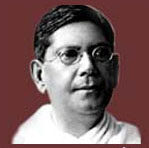Best Practice-1
Title of the Practice
Decision-making through MBO process/ Decentralized Decision-making process
Objective
To decentralized the entire governing process of the college
To set and control the activities related to the vision & mission of the College.
To build a healthy work environment and work culture with in the Institution.
To involve the different stakeholders (students, teachers, NTS) in decision-making process.
To ensure clarity both in the administrative (including financial) and academic activities.
The Context
It is a strategic approach to enhance the performance of the Institution. It is a process where the goals of the organization are defined and conveyed by the administration to the stakeholders of the institution with the intention to achieve each objective through participative decision –making process.
The Practice
Decentralized Decision making process is being practiced from the very inception of the college. The practice of this process is decentralized in two part-
A. Academic Decision-making Process.
B. Administrative Decision making Process.
A. Academic Decision-making Process.
In 1st step-Head of the Department (HOD’s) of different departments have a departmental meeting with other departmental teachers. The decision/s are then either directly sent to the Academic Unit or to the Teachers’ Council Meeting for further discussion or analysis. This is the 2nd step of our decision-making process. The members of teacher’s council are as follows:-
Principal
Teacher’s Council Secretory (TCS)
HOD’S of different departments
All subject teachers
In 3rd step, a meeting is carried on with in principal and different HODs. The decision of the meeting then conveyed to the academic unit.
In 4th step of decision-making process, principal with other sub-committee members have a meeting and convey the decision to the respective academic unit/s.
Some of our specific sub-committee we also have student representative/s.
B. Administrative Decision-making Process
The administrative decision-making process has two part- one is made with internal members and other one is formed with external members. The Principal is the head of all administrative process (including D.D.O of financial matters). Internal Governing body (GB ) members work as an advisory body. Non-teaching staff members also help principal to take decision in several issues.
In other segment of administrative decision-making process president and other external GB members have a meeting with the principal and other internal members. Apart from this, HODs of different departments report to the principal regularly regarding departmental administrative work.
The head clerk also report to the principal and internal (some time External) GB members regarding different official issues.
Evidence of Success
Co-ordination and Co-operation among stakeholders has improved.
Transparency and decentralized element may also be initiated in the decision-making process.
Problem Encountered and Resources Required
• In Teachers’ council meeting we have to suspend all classes at least for 2 to 3 periods.
• As the process requires consensus among all stakeholders, the decision-making process sometimes becomes slow.
Best Practice-2
Title of the Practice: “Aponare Koro Unmochon” (Reveal Yourself) – A Holistic and Comprehensive Development of Journey of Students.
“Education is not preparation for life; education is life itself.” – John Dewey
Education is the key to the all-round development of a child. As a higher Educational Institute, Chittaranjan College plays a vital role in shaping young minds and characters as a means to the comprehensive development of every student.
The objective of the Practice:
All students are different from each other with some distinct flair, aptitude, and capacity. These talents often remain dormant or sometimes unexplored due to a lack of nurturing. Chittaranjan College aims to unleash the latent potential of students through curricular and co-curricular activities to maintain a striking balance between academic excellence and essential human values. The vision and goal of this college are to enrich students’ cognition, social and moral values, creativity, and emotional intelligence.
The Context:
Our educational approach extends beyond mere knowledge transfer, focusing on the assimilation of ideas that build character, resilience, and determination. We aim to develop students’ intellectual, cognitive, physical, creative, and social abilities, preparing them for success in both personal and professional spheres.
The Practice:
Teachers, non-teaching staff, and above all the administration of this college are relentlessly trying to lead students towards comprehensive development for a better future life throughout the year. In doing so the college follows some strategies:
– Student-centric learning and academic environment
– Cultural and co-curricular activities to nurture creativity through different cultural programs, competitions, and observance of national pride days
– Innovative teaching methodologies like peer teaching, problem-solving and inquiry-based learning
– Regular classroom seminars and ICT Presentation for skill development
– Sporting events, YOGA, and recreational activities for physical development.
– Social outreach programs, blood donation camps, and environmental awareness initiatives
Evidence of Success:
Our students’ success is not limited to academic achievements but also extends to their personal growth, leadership development, and community engagement. We are committed to continuing our efforts in providing a supportive and holistic learning environment that fosters the overall development of our students.
Many of our students have excelled in various competitions, showcasing their skills, sportsmanship, and perseverance. Students’ initiatives such as food and cloth distribution, blood donation camps, and environmental awareness programs have benefitted individuals in need. Moreover, our students have represented the college in inter-college sports, earning awards and recognition. These achievements are a testament to the effectiveness of our holistic approach to education and the dedication of our students, staff, and administration. We are proud to see our students grow into confident, competent, and compassionate individuals, ready to make a positive impact in the world.
Problems Encountered and Resources Required:
Organizing different programmes and engaging students in those is a time-consuming process. Time management becomes a challenge as the academic calendar has also to be followed.
Sometimes financial resources are not adequate for the purpose and it becomes a hurdle.
Furthermore, sufficient staff support from all stakeholders is required to continue the process throughout the year.
 Notice for Form Fill up of Sem IV-2025
Notice for Form Fill up of Sem IV-2025
